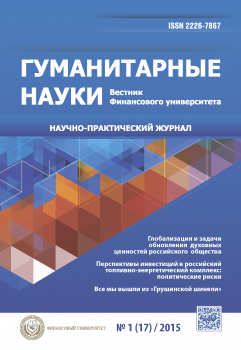The paper suggests, that ensuring continuity in ways of foreign languages teaching to connect learning experiences at all stages of the “school-university-job” educational system should be considered as one of the highest importance to the goal of training competent professionals in a particular sphere. The author describes in details the four main aspects for meeting the said goal, namely, educational, cultural, developing and practical ones, all aimed at bringing up specialists with competencies, relevant to the current employment market. The paper pays special attention to the main requirements in mastering translation from a foreign language into the native one. Where one of the most important and challenging issue concerns translation of strictly specialized texts, for example on financial and economic topics. The article draws examples of new economic terms which are coined within the current economic environment and cause certain difficulties when it comes to figuring adequate corresponding terms in the Russian language. To translate these correctly one needs background knowledge in the field concerned. The author believes that Internet could be highly conducive in mastering translation and facilitative for better understanding of foreign texts. The paper provides references for a number of available educational resources, which can be helpful to foreign language teachers as components of classroom activities within the basic methodic course and also can allow students to complete the majority of assignments directly in the Internet. The article gives examples of appealing educational programs and interactive projects, which are the most useful and engaging resources, first of all because the access to these resources is very easy and unlimited. The author suggests that one of the ways to overcome the gap between school training outcomes and the requirements of higher school is to introduce new information technologies to school teaching to help school students prepare for foreign language teaching technologies adopted by the higher school.
curricula continuity, professional-oriented education, «school — university — job», system.
1. Ponomarenko E.V. Sistemnyy podkhod kak metodologicheskaya osnova izucheniya rechevoy deyatel’nosti [System approach as a methodological basis of studying speech activity]. Vestnik Samarskogo gosudarstvennogo universiteta. Gumanitarnaya seriya [Bulletin of the Samara State University. Humanitarian series]. 2006,I. 1(41), pp. 134-138.
2. Kharchenko M.G. Ispol´zovanie internet-resursov v prepodavanii inostrannogo yazyka v vuze [The use of Internet resources in teaching a foreign language in high school].Gumanitarnye nauki [Humanities and social scienties]. 2011, I. 2, pp. 88-91.
3. Malyuga E., Ponomarenko E. Distance Teaching English for Specifi c Purposes // ICERI2012: 5th International Conference of Education, Research and Innovation. Proceedings CD. Madrid: IATED, 2012.P. 4530-4536.
4. Il’ina O.K. Ispol’zovanie Internet-resursov v prepodavanii angliyskogo yazyka [The use of Internet resources in teaching English]. Sbornik statey pyatogo mezhvuzovskogo seminara po lingvostranovedeniyu [Collection of articles of the fifth inter-university seminar onlinguocultural studies]. Moscow, MGIMO-University Publ. 2008. P. 185-191.
5. Nikolaev S.G., Morgunova M.N. K voprosu ob ekspressivno-stilisticheskoy klassifi katsii spetsial’noy leksiki biznesa v sovremennom angliyskom yazyke. [On the issue of expressive and stylistic classifi cation of special vocabulary of business in modern English]. Vestnik Pyatigorskogo gosudarstvennogo lingvisticheskogo universiteta [Bulletin of the Pyatigorsk State Linguistic University]. 2000, I. 1, pp. 36-41.





